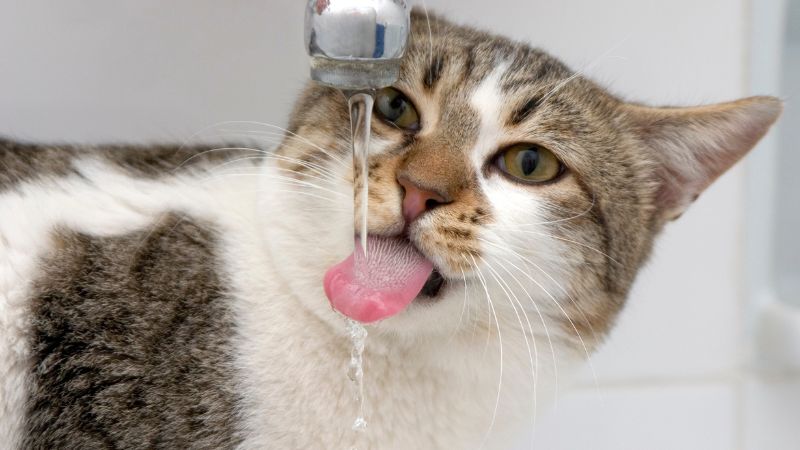Cats are known for their unique behaviors and habits, especially when it comes to eating and drinking. As a cat owner, you might notice changes in your cat's drinking habits, such as an increase in water consumption. This can be puzzling and sometimes worrying. In this article, we'll explore the reasons why your cat might be drinking a lot of water and what it could indicate about their health.
Understanding Normal Drinking Habits
Cats typically don't drink a lot of water, especially if they eat wet food, which contains a significant amount of moisture. However, it's still important for them to have access to fresh water. The amount a cat drinks can be influenced by their diet, the weather, and their activity level.
Increased Water Intake: Possible Causes
1. Dietary Changes
If you've recently switched your cat from wet food to dry food, they may start drinking more water. Dry food has less moisture, so your cat will need to drink more to stay hydrated.
2. Hot Weather
Just like humans, cats may drink more water during hot weather to keep cool and stay hydrated.
3. Increased Activity
More active cats, especially playful kittens, might drink more water to compensate for the water they lose through increased activity.
Health-Related Reasons
An increase in water consumption can sometimes be a sign of health issues.
1. Kidney Disease
Kidney disease is common in cats, especially as they age. One of the early signs is increased thirst and urination.
2. Diabetes
Cats, like humans, can develop diabetes. Increased thirst and urination, along with weight loss, can be symptoms of this disease.
3. Hyperthyroidism
This condition is caused by an overactive thyroid gland and can lead to increased thirst.
4. Urinary Tract Infection or Crystals
These can cause discomfort and lead to increased water consumption.
When to Be Concerned
If your cat's increased water consumption is sudden and significant, it's a good idea to consult with a veterinarian. This is especially true if it's accompanied by other symptoms like changes in appetite, weight loss, or changes in urination habits.
What About Kittens?
In contrast to adult cats, if you notice a kitten won't drink water, it could be a concern. Kittens are still developing their habits and may not always understand the need to drink water, especially if they are used to getting moisture from their mother's milk. Here are some tips to encourage a kitten to drink water:
Place water bowls in multiple locations.
Use shallow bowls so they can easily access the water.
Consider a cat water fountain, as some cats prefer running water.
Preventive Measures
1. Fresh Water Availability
Always make sure your cat has access to fresh, clean water. Change the water regularly and clean the bowl daily to encourage them to drink.
2. Monitor Water Intake
Be aware of how much your cat usually drinks so you can notice any changes. This can be a useful indicator of their health.
3. Regular Vet Check-Ups
Routine veterinary check-ups can help detect and treat any underlying health issues early.
Conclusion
An increase in your cat's water consumption can be due to various reasons, ranging from simple changes in the environment or diet to more serious health issues. It's important to monitor their water intake and be aware of other signs that might indicate a health problem. On the flip side, if a kitten won't drink water, it's also a cause for concern and requires attention to ensure they stay hydrated. Always provide fresh water and consult with a veterinarian if you notice any concerning changes in your cat's drinking habits. By understanding these needs and behaviors, you can help ensure your feline friend stays happy and healthy.


